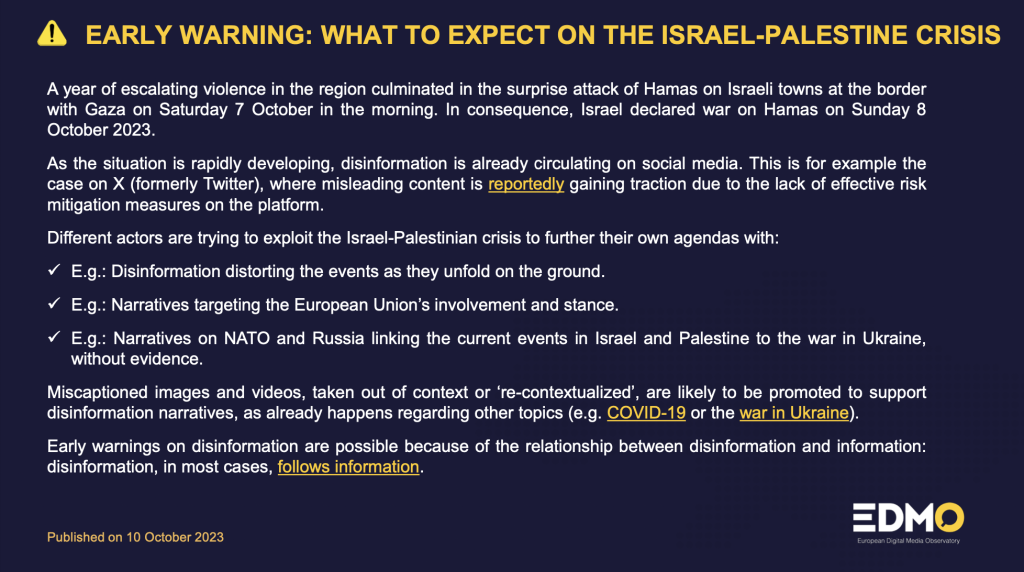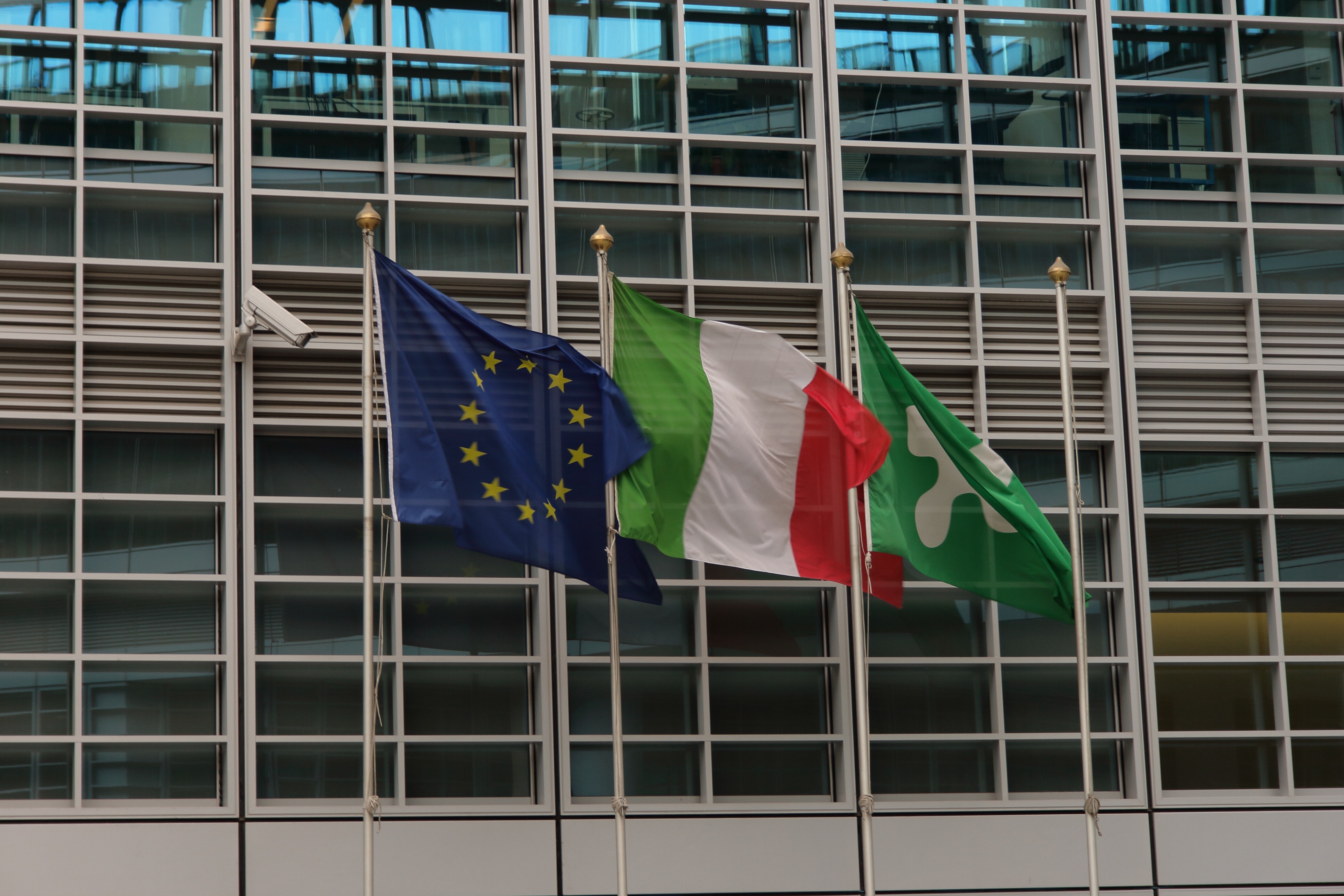A year of escalating violence in the region culminated in the surprise attack of Hamas on Israeli towns at the border with Gaza on Saturday 7 October in the morning. In consequence, Israel declared war on Hamas on Sunday 8 October 2023.
As the situation is rapidly developing, disinformation is already circulating on social media. This is for example the case on X (formerly Twitter), where misleading content is reportedly gaining traction due to the lack of effective risk mitigation measures on the platform.
Different actors are trying to exploit the Israel-Palestinian crisis to further their own agendas with:
E.g.: Disinformation distorting the events as they unfold on the ground.
E.g.: Narratives targeting the European Union’s involvement and stance.
E.g.: Narratives on NATO and Russia linking the current events in Israel and Palestine to the war in Ukraine, without evidence.
Miscaptioned images and videos, taken out of context or ‘re-contextualized’, are likely to be promoted to support disinformation narratives, as already happens regarding other topics (e.g. COVID-19 or the war in Ukraine).
Early warnings on disinformation are possible because of the relationship between disinformation and information: disinformation, in most cases, follows information.




